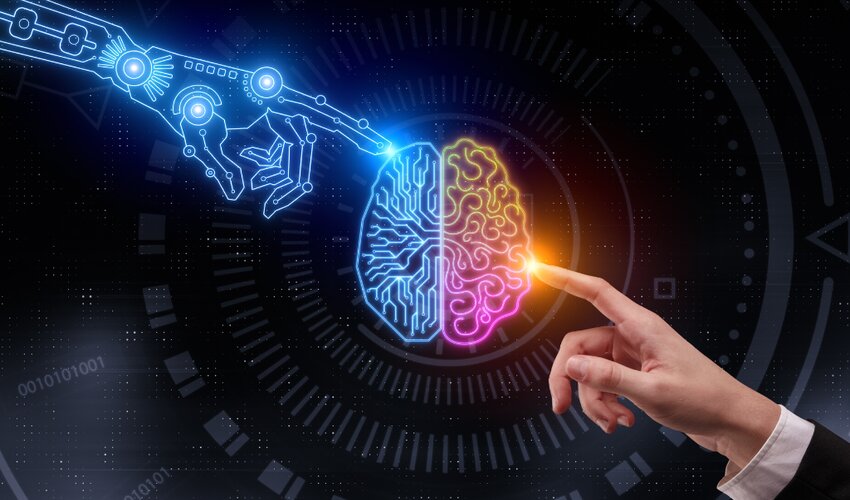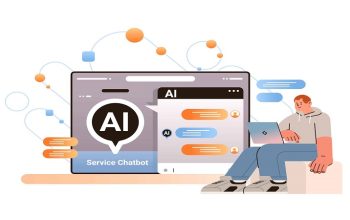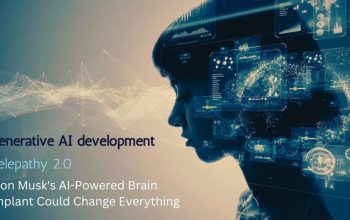The development process for mobile applications has been impacted by recent advancements in machine learning and artificial intelligence (AI). These advancements have significantly impacted mobile app development, dissemination, and usage. Developers that are proficient in AI and ML create mobile applications that are smarter, easier to use, and more efficient.
The employment of machine learning engineers is projected to grow by 22% between 2020 and 2030. The role of artificial intelligence (AI) and machine learning (ML) in the app market is discussed in this article.
- AI and ML Fundamentals
Before entering into the actual uses of AI for mobile app automation and ML in mobile app development, it is vital to grasp the fundamentals of these fields.
- Artificial Intelligence (AI)
AI aims to enable robots to do tasks that would otherwise need human intelligence. Computer vision, machine learning, and natural language processing (NLP) are all branches of AI.
- Machine Learning (ML)
Machine learning is an area of artificial intelligence that aims to give computers the capacity to learn from data and act accordingly. As a result, computers are increasingly developing their perception and reasoning abilities, even in challenging situations.
2. Enhanced User Experience
Developers of mobile apps may provide much better service to their customers by incorporating AI and ML into their products. Here’s how they make it off:
- Personalization
Recommendation Systems:
There has been a growth in the use of recommendation algorithms powered by artificial intelligence in mobile applications. Netflix, Spotify, and Amazon all utilize machine learning algorithms to monitor user behavior and provide tailored suggestions.
User Interface Customization:
The user interface of the app might benefit from the use of AI. The result is an experience that is unique to the customer and satisfying to them.
- Chatbots and Virtual Assistants
Chatbots and virtual assistants may now interact with people in real time due to advancements in NLP and ML. One of their numerous qualities is their ability to teach, answer inquiries, and carry out directives. Introducing virtual assistants like Apple’s Siri and Google’s Now has caused a seismic upheaval in the mobile sector.
- Voice and Image Recognition
Machine learning and artificial intelligence have progressed to the point where smartphones can analyze audio and video. Accessibility and augmented reality aren’t the only areas where speech recognition techniques like Google voice-to-text and image recognition systems like Google Lens have made a difference.
- Predictive Text and Auto-correction
Predictive text and auto-correction capabilities powered by AI have drastically reduced typing time on mobile devices. Apps like Gboard and SwiftKey use ML models to suggest words and fix typos as you type, making writing simpler and quicker.
- Improved App Functionality
Artificial intelligence (AI) and machine learning (ML) are increasingly integrated into mobile apps to enhance their features. The following are examples of some of their most important work:
- Predictive Analytics
Predictive analytics use data mining and machine learning to foretell the future. Some potential uses for this data in mobile applications include user preference prediction, improved inventory management, and traffic pattern forecasting.
- Fraud Detection
Apps for mobile banking and online shopping use AI and ML to monitor transactions in real time and identify any potentially fraudulent ones. Using bank information, these algorithms look for signs of fraud.
- Health and Fitness Apps
There are currently artificial intelligence (AI) and machine learning (ML)-powered health and fitness apps. Individualized workout plans might be made available to customers through apps that collect data from wearable gadgets.
- Navigation and Maps
Apps like Google Maps and Waze employ AI to monitor real-time traffic, plot the most suitable routes, and keep users apprised of changes. These applications are crucial since they reduce travel time and open communication.
- Automation and Efficiency
Using AI and ML, mobile app development has been sped up and made more affordable. Some advantages of employing automation tools while developing applications include:
- Code Generation
AI-powered automated coding assistants have the potential to shorten iteration cycles and boost code quality. Artificial intelligence (AI) enables low-code and no-code platforms to be used by non-programmers.
- Testing and Debugging
Automation of tests and fixes might be made possible by artificial intelligence (AI). It aids programmers in fixing the most pressing problems by calling attention to bottlenecks in both performance and features.
- App Deployment
When machine learning models automate the deployment process, the deployment strategy is streamlined, downtime is minimized, and app performance is boosted.
- App Maintenance
Artificial intelligence (AI)-powered solutions may monitor an app’s performance, detect problems as they arise, and advise on fixing them to save maintenance time and improve user happiness.
- Future Trends in AI and ML for Mobile App Development
Several issues affect the future of AI and ML in mobile app development.
- Edge Computing
Edge computing reduces the impact of network delay on app performance by processing data close to its source. This suggests that deploying AI algorithms on edge devices might be helpful for mobile apps.
- AI-powered IoT Integration
Apps for smartphones and the Internet of Things (IoT) are increasingly interwoven. To analyze and comprehend the enormous amounts of data produced by these devices, artificial intelligence (AI) is essential. This allows developers to create more innovative smartphone applications working with different IoT devices.
- Ethical AI
There are growing ethical problems due to the widespread use of AI in mobile app development. Ethical AI solutions are essential for developers to employ when making trustworthy, transparent, and accountable software.
- Advanced Natural Language Processing
Natural language processing, which enables computers to comprehend and replicate human speech and writing, has opened up a new realm of possibilities for mobile app developers. This might be useful for chatbots, machine translators, and AI assistants.
- Challenges in Implementing AI and ML in Mobile App Development
The advantages of incorporating AI and ML into mobile app development are indisputable, but there are still obstacles that companies and app developers must overcome.
- Data Privacy and Security
Collecting and storing large amounts of user data may raise privacy and security issues. Developers must protect their users’ data to maintain their consumers’ trust.
- Skill Gap
Knowledge of AI and ML is not assumed. Many developers would need extra training or the aid of professionals to install these technologies correctly.
- Compatibility
Some mobile devices may be unable to handle the processing power required by artificial intelligence and machine learning models. Maintaining compatibility across diverse hardware and software is a challenging issue.
- Cost
The costs associated with introducing AI and ML include not just the initial setup but also the maintenance of the system over time. Funding is relatively easy for startups and freelance developers.
Conclusion
Artificial intelligence (AI) and machine learning (ML) have significantly changed the mobile app market. It has streamlined app development and enhanced its usefulness. The future of mobile app development seems promising due to the rapid growth of these technologies.
Data security, talent shortages, incompatibility, expense, and ethical concerns are just some of the obstacles that need to be overcome before these technologies can fulfill their potential. AI and ML have likely had a significant role in the explosive growth of the mobile app industry.
Author bio:
Justin Rath, mobile app development Consultant from Orange County, CA, has over ten years of experience in creating engaging mobile app development. He is a tech enthusiast who publishes material to inform readers about various technologies and their related trends.




